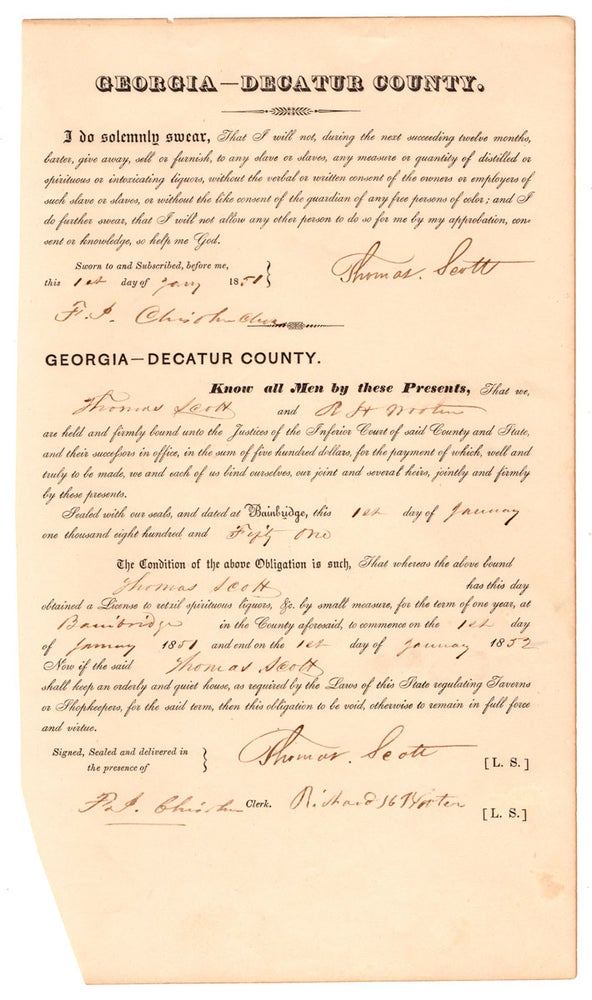Pledge not to provide alcohol to slaves or free people of color.
Decatur County, Georgia, 1 January 1852. Printed document completed in manuscript, 12.75” x 7.25”. CONDITION: Very good, toned at edges, a few small chips and tears at top edge. Tavern owner Thomas Scott’s formal pledge not to “barter, give away, sell or furnish, to any slave or slaves, any measure or quantity of distilled or spiritous or intoxicating liquors without the verbal or written consent of the owners or employees of such slave or slaves, or without the like consent of the guardian of any free person of color.” Below the pledge, Scott, along with Richard H. Wooten, evidently a business partner or a backer, acknowledge their binding agreement to pay 500 dollars to the Justices of the Inferior Court of Decatur County, “having obtained a license to sell spiritous liquors.” The document is signed by F. P. Chisolm, Clerk. Alcohol had always been entangled in race and power relations in the South, feared by whites as a destructive force or fomenter of revolution among Blacks but also used as a means of distraction and control. Indeed, Frederick Douglass called liquor “the most effective means in the hands of the slave holder in keeping down the spirit of insurrection.” When Scott made this pledge in 1852, the temperance movement was gaining ground across the South—albeit, of course, with different politics than in the North, where it was linked with abolitionism through figures like Douglass and Lyman Beecher. In Mississippi, for instance, legislation had already been passed regulating the quantity of alcohol legally saleable to whites. The same legislation prohibited its sale “to the Indian or negro, whether slave or free, in any quantity whatever” (Journal). Scott’s pledge illustrates this racist catch-22 of prohibition and alcohol in the South: both were equally “intertwined with Black disenfranchisement and subordination” (Fahey). The 1850 census lists the twenty-three year old Scott as a merchant, originally from Florida. The same census shows both a father and son named “Richard Wooten,” in a long line of the same name. REFERENCES: Douglass, Frederick. Narrative of the Life of Frederick Douglass, American Slave (Boston, 1846), p. 74; Fahey, David. “Temperance Movement,” New Georgia Encyclopedia online; Journal of the American Temperance Union, Vol. 3, No. 4 (1839), p. 61.
Item #7341
Price: $650.00


